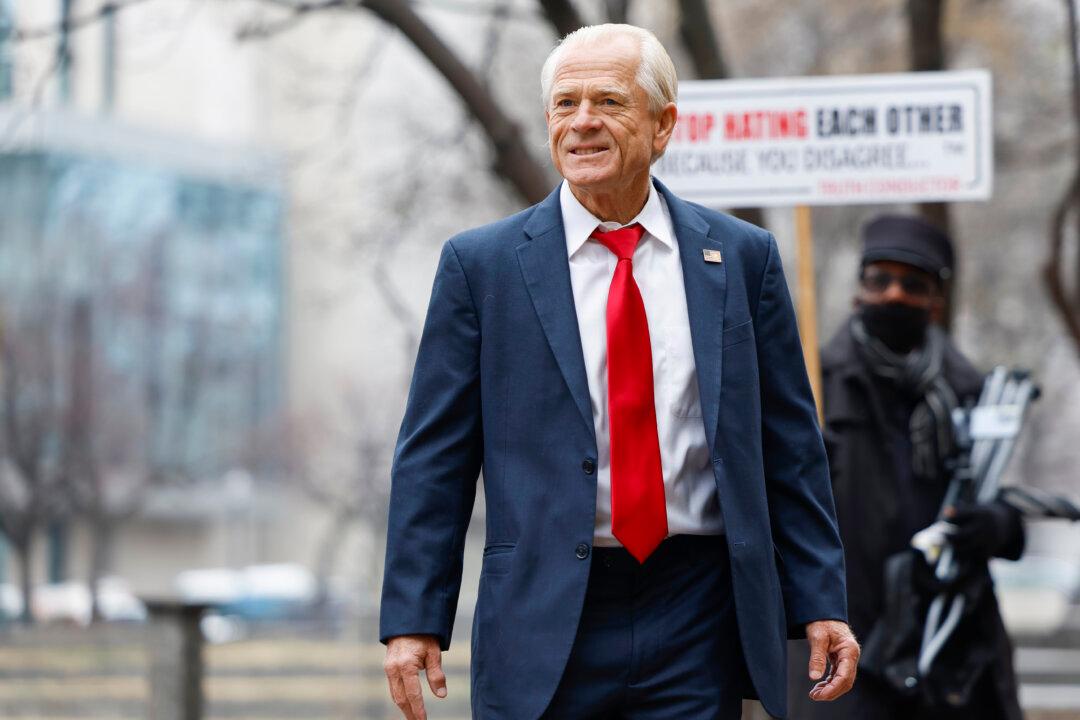WASHINGTON—Peter Navarro, a former Trump White House adviser, has been sentenced to four months in prison and ordered to pay $9,500 in fines for his refusal to comply with congressional subpoenas that he said were covered by executive privilege.
“I haven’t heard a word of contrition from Dr. Navarro since this case began,” U.S. District Judge Amit Mehta said during Mr. Navarro’s sentencing hearing on Jan. 25. While issuing his sentence, Judge Mehta noted Mr. Navarro’s academic accomplishments and said that he didn’t “come from means” and “overcame financial challenges” in his life.





